Home>diy>Building & Construction>What Is A Construction Loan For A House
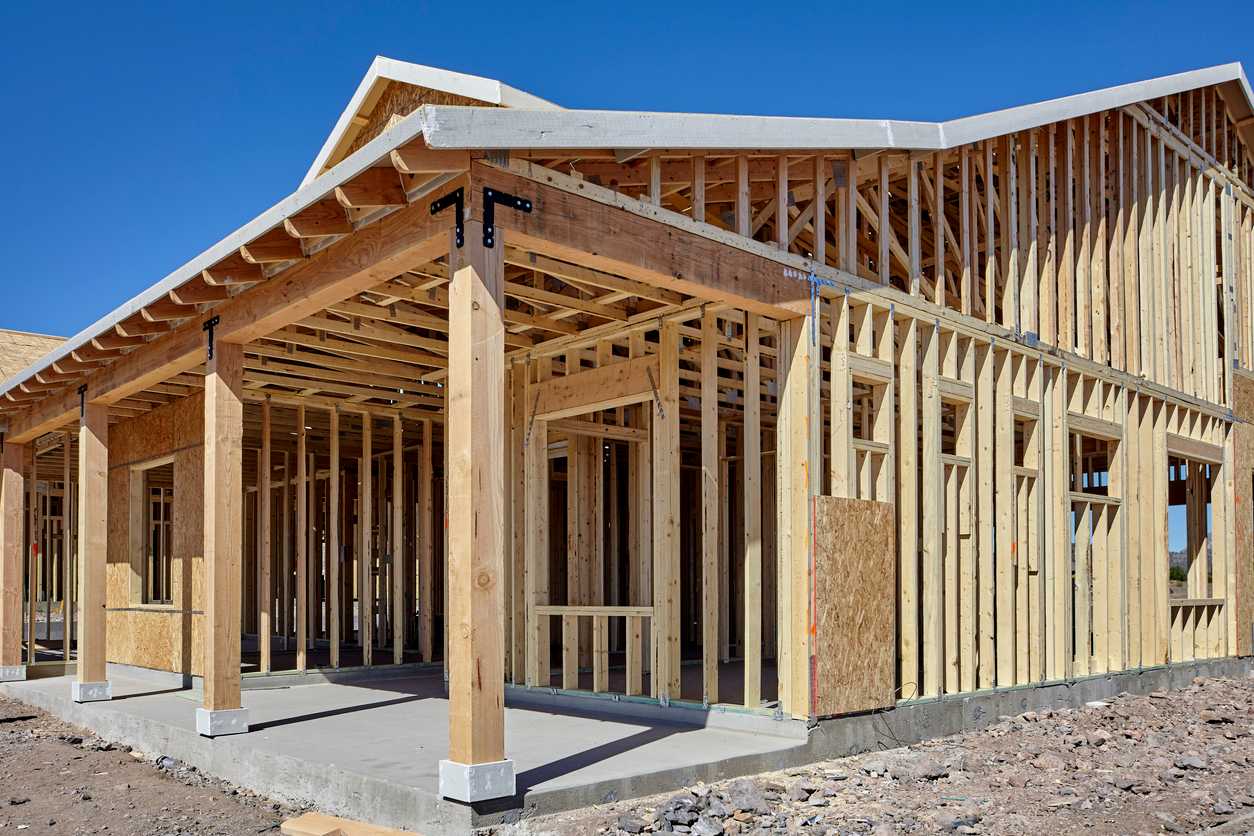

Building & Construction
What Is A Construction Loan For A House
Modified: February 25, 2024
Learn about construction loans for building your dream house. Find out how they work and get tips on securing the funding you need.
(Many of the links in this article redirect to a specific reviewed product. Your purchase of these products through affiliate links helps to generate commission for Storables.com, at no extra cost. Learn more)
Introduction
Building your dream home is an exciting and fulfilling endeavor. However, the path to constructing a house involves various stages, including securing financing. This is where a construction loan comes into play. If you’re planning to build your own home, it’s essential to understand what a construction loan is and how it works.
A construction loan is a type of loan specifically designed to fund the construction of a new home. Unlike traditional mortgages which are used to purchase an existing property, a construction loan provides the necessary funds to cover the costs of building a house from the ground up. Whether you’re envisioning a custom-built luxury mansion or a cozy family home, a construction loan can help you turn your dream into a reality.
Construction loans operate differently from conventional mortgages. Instead of receiving the full loan amount upfront, the funds are distributed in stages, commonly known as “draws,” as the construction progresses. This ensures that the funds are utilized for the specific purposes agreed upon and minimizes the lender’s risk.
There are several types of construction loans available, each with its own features and requirements. These include construction-to-permanent loans, which combine the construction financing with a long-term mortgage, and stand-alone construction loans, which provide financing solely for the construction phase. Understanding the options available to you is crucial in deciding which type of construction loan best suits your needs.
The process of applying for a construction loan generally involves more extensive documentation and evaluation compared to traditional mortgages. Lenders will assess various factors such as your creditworthiness, income stability, and the construction plans to determine if you meet their lending criteria. Being prepared with a comprehensive construction plan and financial documents will help facilitate the application process.
Before applying for a construction loan, it’s important to evaluate your financial situation and consider various factors. This includes estimating the total cost of construction, assessing your budget and cash flow, as well as evaluating the risks involved. Careful planning and thorough research will help you make informed decisions and avoid potential pitfalls throughout the construction process.
Similar to any financial product, construction loans come with their own set of advantages and disadvantages. Understanding these pros and cons will help you make an informed decision and determine if a construction loan is the right financing option for your project.
In this guide, we will delve deeper into the world of construction loans, exploring the different types available, the application process, and the factors to consider before taking the plunge. By the end of this article, you will have a comprehensive understanding of construction loans and be better equipped to navigate the process of securing financing for your dream home.
Key Takeaways:
- Construction loans provide the flexibility to customize your dream home, but come with a complex application process, potential budget overruns, and higher interest rates compared to traditional mortgages.
- Thoroughly evaluating factors such as total construction cost, budget, builder selection, and loan terms is crucial before embarking on a construction project with a construction loan.
Read more: What Is A Commercial Construction Loan
Definition of a Construction Loan
A construction loan is a specialized type of loan that provides financing specifically for the construction of a new home or significant renovations to an existing property. Unlike a traditional mortgage where you receive a lump sum of money to purchase an already-built property, a construction loan provides funds in stages as the construction progresses.
One of the key aspects of a construction loan is its temporary nature. It is typically a short-term loan that is meant to cover the construction phase only, ranging from six months to a year. Once the construction is completed, the loan must be paid off or converted into a long-term mortgage.
Construction loans are considered riskier for lenders because they involve financing a project that has yet to be completed. Therefore, the requirements for obtaining a construction loan are often more stringent compared to a regular mortgage. Lenders will carefully evaluate the borrower’s creditworthiness, financial stability, construction plans, and estimated costs before approving the loan.
Construction loans can be either construction-to-permanent loans or stand-alone construction loans. A construction-to-permanent loan, also known as a “one-time close” loan, combines the construction financing with a long-term mortgage. This type of loan eliminates the need to go through the application process twice and offers convenience. On the other hand, stand-alone construction loans are specifically for financing the construction phase and require a separate loan for the long-term financing.
During the construction phase, the borrower receives funds in stages known as “draws.” These draws are usually based on the completion of specific milestones in the construction process, such as completing the foundation, framing, or installation of utilities. An inspector appointed by the lender will evaluate the progress before authorizing the release of funds for each draw.
It’s important to note that construction loans typically have higher interest rates compared to traditional mortgages. This is due to the increased risk associated with financing a project that is not yet completed. Additionally, construction loans often require interest-only payments during the construction phase, with the principal amount becoming due and converting to a long-term mortgage once construction is complete.
Overall, a construction loan is a specialized financing option that provides the necessary funds to build a new home or undertake significant renovations. It involves receiving funds in stages throughout the construction process and typically requires more stringent qualification criteria compared to a regular mortgage. Construction loans offer flexibility and convenience for those looking to build their dream home, but it’s important to thoroughly understand the terms, costs, and requirements before proceeding with this type of financing.
How Construction Loans Work
Construction loans operate differently from traditional mortgages, as they are specifically designed to finance the construction of a new home or significant renovations. Understanding how construction loans work is crucial for anyone considering building their own home. Here’s a breakdown of the key components of a construction loan:
1. Loan Disbursement: Unlike a traditional mortgage where you receive the full loan amount upfront, construction loans disburse funds in stages known as “draws.” These draws are typically linked to specific milestones in the construction process, such as completing the foundation, framing, or installation of utilities. An inspector appointed by the lender evaluates the progress before authorizing the release of funds for each draw.
2. Interest-only Payments: During the construction phase, borrowers usually make interest-only payments. This means that they are only required to pay the accrued interest on the amount disbursed so far, rather than paying both interest and principal. This payment structure helps maintain affordability during the construction process.
3. Conversion to Permanent Mortgage: Once the construction is complete, the loan is either paid off or converted into a permanent mortgage. In the case of a construction-to-permanent loan, the loan automatically converts into a traditional mortgage without the need for a separate application. Stand-alone construction loans, however, require a separate loan for the permanent financing.
4. Higher Interest Rates: Construction loans typically have higher interest rates compared to traditional mortgages. This is due to the increased risk associated with financing a project that has yet to be completed. However, the interest rate may be locked in during the application process, providing some stability in an unpredictable market.
5. Construction Process Oversight: Lenders closely monitor the construction process to minimize their risk. They may require regular inspections by an appointed inspector to ensure that the construction is progressing according to plan. The inspector provides quality assurance and verifies that the funds are being used for their intended purpose.
6. Comprehensive Construction Plan: To obtain a construction loan, borrowers need to present a comprehensive construction plan. This includes detailed architectural plans, cost estimates, construction timelines, and contractor agreements. Lenders will review these documents to assess the feasibility and cost-effectiveness of the project.
It’s important to note that obtaining a construction loan is not as straightforward as getting a traditional mortgage. Lenders have stricter eligibility criteria and may require a larger down payment or a higher credit score. The borrower’s financial stability and ability to repay the loan are carefully evaluated. Additionally, the borrower should be prepared to provide regular updates and documentation throughout the construction process.
In summary, construction loans differ from traditional mortgages in several ways. The funds are disbursed in stages throughout the construction process, and borrowers typically make interest-only payments during this time. Once construction is complete, the loan is either paid off or converted into a permanent mortgage. Construction loans require comprehensive construction plans and oversight to ensure that the funds are used appropriately. It’s essential to thoroughly understand how construction loans work and the associated costs and requirements before embarking on a construction project.
Types of Construction Loans
When it comes to financing the construction of a new home or significant renovations, there are different types of construction loans available to suit varying needs and circumstances. Here are the main types of construction loans:
1. Construction-to-Permanent Loans: Also known as “one-time close loans,” construction-to-permanent loans combine the financing for the construction phase and the long-term mortgage into a single loan. With this type of loan, borrowers only need to go through the application process once. Once the construction is complete, the loan automatically converts to a traditional mortgage, providing long-term financing for the home. Construction-to-permanent loans offer convenience and eliminate the need for additional paperwork and fees associated with a separate loan for permanent financing.
2. Stand-Alone Construction Loans: Stand-alone construction loans are specifically designed to finance the construction phase of a new home. These loans do not convert to permanent mortgages automatically. Once the construction is complete, borrowers need to secure permanent financing separately. Stand-alone construction loans are a viable option for those who prefer to shop around for different long-term mortgage options or have unique circumstances that require flexibility in the permanent mortgage terms.
3. Renovation Construction Loans: If you’re planning extensive renovations or remodeling to an existing property, a renovation construction loan may be the right choice. These loans provide financing specifically for the renovation costs. Renovation construction loans can be used to update and improve kitchens, bathrooms, or even add additional living space. Depending on the scope of the renovations, the loan may include funds for both the construction and the cost of purchasing the property.
4. Owner-Builder Construction Loans: Owner-builder construction loans are designed for individuals who have the knowledge, skills, and experience to act as their own general contractor during the construction process. With this type of loan, borrowers have more control over the construction project and can potentially save money on contractor fees. However, lender qualification requirements are typically stricter, as owner-builders need to demonstrate their expertise and ability to manage the construction project successfully.
5. Spec Construction Loans: Spec construction loans are specifically for builders and developers who construct homes without a buyer lined up. These loans are used to finance the construction of a speculative or “spec” home, with the intention of selling it once completed. The borrower is expected to sell the property shortly after construction or secure long-term financing through a traditional mortgage. Spec construction loans carry higher risk for lenders, resulting in higher interest rates and stricter qualification criteria.
It’s important to carefully consider your needs, preferences, and financial situation when choosing a construction loan type. Consulting with a knowledgeable lender or financial advisor can help you understand the options available and determine the best fit for your particular project. Remember to thoroughly review the loan terms, interest rates, repayment plans, and any associated fees before making a decision.
In summary, construction loans come in various forms to accommodate different construction projects and borrower circumstances. Construction-to-permanent loans combine the construction financing and long-term mortgage into a single loan, while stand-alone construction loans provide separate financing for the construction phase. Renovation construction loans are ideal for extensive remodeling projects, owner-builder construction loans offer more control for experienced individuals, and spec construction loans cater to builders and developers constructing homes without buyers. Evaluating your specific needs and consulting with professionals will help you choose the most suitable construction loan type for your project.
Application Process for a Construction Loan
Applying for a construction loan involves a more rigorous process compared to traditional mortgages. Lenders carefully evaluate the borrower’s financial stability, construction plans, and estimated costs to assess the viability of the project. Here are the key steps involved in the application process for a construction loan:
1. Research Lenders: Start by researching lenders who offer construction loans. Look for lenders who specialize in construction financing and have experience in approving and disbursing funds for construction projects. Compare interest rates, terms, fees, and customer reviews to choose a lender that best suits your needs.
2. Gather Documentation: Construction loan applications require extensive documentation to assess your eligibility. Prepare comprehensive financial documents, including tax returns, bank statements, proof of income, and employment history. Be prepared to provide detailed construction plans, architectural blueprints, cost estimates from contractors, and any other relevant documents requested by the lender.
3. Engage a Qualified Builder: Lenders typically require borrowers to work with qualified and licensed builders. This is to ensure that the construction project is carried out by professionals who meet certain standards. The lender may ask for references and proof of the builder’s qualifications and experience.
4. Submit the Application: Once you have gathered all the necessary documents, submit your application to the lender. You may need to pay an application fee at this stage. The lender will review your application and documentation to determine your eligibility for the construction loan.
5. Loan Approval and Estimate: If your application is approved, the lender will provide you with a loan estimate. This estimate will include details such as the loan amount, interest rate, loan term, and any associated fees. Review the loan estimate carefully to ensure you understand the terms and conditions of the loan.
6. Appraisal and Inspection: As part of the loan approval process, the lender may conduct an appraisal and inspection of the construction project. An appraiser will assess the market value of the completed home, while an inspector appointed by the lender will evaluate the construction plans, progress, and quality standards. This step helps the lender determine the loan amount and ensures that the funds are being used for their intended purpose.
7. Loan Closing: Once all the necessary evaluations and assessments are complete, the loan closing process can begin. During the closing, you will sign the loan documents and any required contracts. You may also need to provide a down payment, which is typically a percentage of the loan amount. The lender will then disburse the funds for the construction project in stages, based on the agreed draw schedule.
Throughout the construction phase, the lender will continue to monitor the progress of the project through inspections and releasing funds for each draw based on the completion of milestones. Be prepared to provide regular updates and documentation to the lender as required.
It’s crucial to note that the application process for a construction loan can be more complex and time-consuming compared to regular mortgages. It is important to have patience and be prepared to provide detailed information and documentation. Working with experienced professionals, such as builders, architects, and lenders, can help streamline the process and ensure a successful loan application.
In summary, the application process for a construction loan involves researching and choosing a lender, gathering extensive documentation, engaging a qualified builder, submitting the application, undergoing appraisal and inspection, and closing the loan. Effective communication and organization, along with thorough preparation, will increase your chances of securing a construction loan and successfully completing your dream home project.
A construction loan is a short-term loan used to finance the building of a new home. It typically has variable interest rates and requires a detailed construction plan and timeline. Be prepared for higher interest rates and stricter qualification requirements compared to a traditional mortgage.
Read more: What Is Retainage In A Construction Loan
Factors to Consider Before Applying for a Construction Loan
Before applying for a construction loan, it’s essential to carefully evaluate several factors to ensure you are well-prepared and make informed decisions throughout the process. Taking the time to consider these factors will help set realistic expectations and increase your chances of a successful construction loan application. Here are the key factors to consider:
1. Total Cost of Construction: Determine the estimated total cost of the construction project. This includes not only the construction materials and labor but also permits, fees, design, and architectural plans, as well as any unexpected additional expenses that may arise during the construction process. It’s crucial to have a realistic understanding of the costs involved to determine the appropriate loan amount.
2. Budget and Cash Flow: Assess your personal budget and cash flow to ensure you can comfortably manage the loan payments along with your other financial obligations. Construction loans typically involve interest-only payments during the construction phase, followed by higher monthly payments when the loan converts to a long-term mortgage. Ensure that you have sufficient funds to cover these payments without straining your finances.
3. Builder Selection: Choose a reputable and experienced builder who is qualified to undertake the construction project. Look for builders with a track record of successfully completing similar projects, a solid reputation, and proper licensing and insurance. Your choice of builder can significantly impact the overall success and quality of the construction project.
4. Construction Timeline: Assess the estimated construction timeline and consider factors that may affect the project’s completion, such as weather conditions, availability of labor and materials, and any potential delays. Understanding the timeline will help you plan other aspects of your life, such as temporary housing arrangements if needed, and ensure that the loan term aligns with the construction timeframe.
5. Loan Terms and Interest Rates: Review the terms and conditions of the construction loan, including the interest rate, loan term, fees, and repayment schedule. Understand the implications of these terms on your finances and ensure they align with your long-term goals. Compare loan offers from different lenders to ensure you are getting the most favorable terms.
6. Relationship with Lender: Consider the rapport and communication with the lender. A strong relationship with your lender can help streamline the application process, facilitate communication during the construction phase, and address any issues that may arise. Choose a lender who is knowledgeable, responsive, and has experience with construction loans.
7. Risks and Contingencies: Evaluate the potential risks and have contingency plans in place. Construction projects can encounter unexpected challenges, such as cost overruns, delays, or unforeseen issues during the construction process. Understanding the risks and having backup plans can help mitigate these challenges and ensure a successful project completion.
8. Your Long-Term Goals: Consider your long-term goals for the property. Are you planning to live in the home for many years, or do you envision selling it once it’s completed? This will affect your decision-making throughout the construction process, including the choice of finishes and features, the quality of construction materials, and the long-term mortgage options you pursue.
Thoroughly assessing these factors before applying for a construction loan will help set realistic expectations and ensure that you are fully prepared for the challenges and responsibilities of building your own home. It’s essential to have a clear understanding of your financial situation, the construction project itself, and the risks involved. Working with experienced professionals, such as builders, architects, and lenders, can provide valuable guidance and support throughout the process.
In summary, carefully consider the total cost of construction, budget and cash flow, builder selection, construction timeline, loan terms and interest rates, relationship with the lender, risks and contingencies, and your long-term goals before applying for a construction loan. Thorough evaluation and planning will empower you to make informed decisions and increase the likelihood of a successful construction project.
Pros and Cons of Construction Loans
Construction loans offer a unique financing option for individuals looking to build their own homes or undertake significant renovations. Like any financial product, construction loans come with their own set of advantages and disadvantages. It’s important to consider these pros and cons to determine if a construction loan is the right choice for your specific circumstances. Here are the key pros and cons of construction loans:
Pros:
- Customization: One of the biggest advantages of a construction loan is the ability to customize your home to your exact specifications. Unlike purchasing an existing property, you have the freedom to design and build your dream home from scratch, incorporating your personal style and preferences.
- Flexible Draw Schedule: Construction loans provide funding in stages, known as draws, based on the completion of specific milestones in the construction process. This allows for more control over the flow of funds and ensures that the funds are used for their intended purpose.
- Interest-only Payments: During the construction phase, borrowers usually only have to make interest-only payments, which can help manage cash flow and make the payments more affordable. This frees up funds for other expenses during the construction process.
- Potential Cost Savings: Building your own home gives you the opportunity to source materials, negotiate with contractors, and make design choices that may result in potential cost savings compared to buying an existing property. You have more control over the budget and can make decisions that align with your financial goals.
- Increased Property Value: By building a new home, you have the potential to create a property with higher value compared to purchasing an existing property. The design choices, quality of construction, and modern features can enhance the value of your home in the long run.
Cons:
- Complex Application Process: Applying for a construction loan involves a more rigorous process compared to traditional mortgages. Lenders examine the borrower’s financial stability, construction plans, and estimated costs in detail, which can be time-consuming and require more documentation.
- Higher Interest Rates: Construction loans typically come with higher interest rates compared to traditional mortgages. This is due to the increased risk associated with financing a project that has yet to be completed. It’s important to carefully calculate the potential cost implications of the higher interest rates.
- Potential Construction Delays: Construction projects are subject to various factors that can cause delays, such as weather conditions, permit approvals, or unforeseen issues during the construction process. Delays can result in additional costs, extended temporary housing arrangements, and potential frustration during the construction phase.
- Higher Risk for Lenders: Construction loans carry higher risks for lenders, as they involve financing a project that has yet to be completed. Lenders mitigate this risk by carefully assessing the borrower’s financial stability and the feasibility of the construction project. This can result in stricter eligibility criteria and requirements.
- Potential Budget Overruns: Construction projects can sometimes exceed the initial budget due to unforeseen circumstances, changes in construction plans, or rising material costs. It’s essential to have contingency plans in place and be prepared for potential additional expenses.
It’s crucial to consider these pros and cons in the context of your specific circumstances and priorities. While construction loans offer flexibility and the opportunity to build your dream home, they also come with potential challenges and risks. Thoroughly assess your financial situation, project scope, and risk tolerance before deciding if a construction loan is the right financing option for you.
In summary, the advantages of construction loans include customization, flexible draw schedules, interest-only payments, potential cost savings, and increased property value. However, the application process can be complex, interest rates may be higher, construction delays can occur, and there are risks associated with the project and potential budget overruns. Carefully weighing the pros and cons will help you make an informed decision and determine if a construction loan aligns with your goals and capabilities.
Frequently Asked Questions
Q: What is the difference between a construction loan and a traditional mortgage?
A: A construction loan is specifically designed to fund the construction of a new home or significant renovations, while a traditional mortgage is used to purchase an existing property. Construction loans provide funds in stages during the construction process, while traditional mortgages provide a lump sum amount upfront for the purchase of a completed property.
Q: How do I qualify for a construction loan?
A: Qualifying for a construction loan involves a more rigorous process compared to a traditional mortgage. Lenders will assess factors such as your creditworthiness, income stability, construction plans, and estimated costs. They may also require a higher down payment and a higher credit score compared to traditional mortgages.
Q: How are funds disbursed in a construction loan?
A: Funds in a construction loan are disbursed in stages, known as “draws,” based on the completion of specific milestones in the construction process. An appointed inspector evaluates the progress before authorizing the release of funds for each draw.
Q: What is the interest rate for a construction loan?
A: The interest rates for construction loans are typically higher compared to traditional mortgages. This is due to the increased risk associated with financing a project that has yet to be completed. However, you can often lock in the interest rate during the application process to provide some stability in an unpredictable market.
Q: Can I use a construction loan for renovations?
A: Yes, there are construction loans available specifically for significant renovations or remodeling projects. These loans provide financing for the renovation costs and can be used to update and improve existing properties.
Q: Can I act as my own contractor with a construction loan?
A: Some lenders offer owner-builder construction loans that allow individuals to act as their own general contractors during the construction process. However, qualification requirements for these types of loans are typically more stringent, as you need to demonstrate your expertise and ability to manage the project successfully.
Q: What happens once the construction is complete?
A: Once the construction is complete, the construction loan is either paid off or converted into a long-term mortgage. In the case of a construction-to-permanent loan, the loan automatically converts to a traditional mortgage without the need for a separate application. Stand-alone construction loans require a separate loan for the permanent financing.
Q: What risks are associated with construction loans?
A: Construction loans carry several risks, including potential construction delays, budget overruns, and unforeseen issues during the construction process. It’s important to have contingency plans in place and be prepared for these potential challenges.
Q: Can I use a construction loan to build investment properties?
A: Yes, construction loans can be used to build investment properties, such as rental properties or commercial buildings. However, it’s important to note that financing for investment properties may have stricter qualification criteria and different terms compared to loans for primary residences.
Q: How long does it take to get approved for a construction loan?
A: The approval process for a construction loan can take longer compared to a traditional mortgage. It often involves evaluating the construction plans, estimating costs, and a thorough review of the borrower’s financial stability. The timeline can vary depending on the complexity of the project and the lender’s internal processes.
Q: Can I make changes to the construction plans after the loan is approved?
A: Making changes to the construction plans after the loan is approved can be challenging. It is important to communicate any design modifications or changes to the lender and seek their approval before proceeding. Significant changes may require re-evaluation of the loan terms and potential delays in disbursement of funds.
In summary, construction loans come with specific considerations and requirements. These frequently asked questions provide a general understanding of construction loans’ key aspects. However, it is important to consult with a knowledgeable lender or financial advisor to clarify any specific concerns or tailored advice regarding your construction project and financing options.
Conclusion
Building your dream home is an exciting and rewarding endeavor, and a construction loan can provide the necessary financing to turn your vision into reality. Construction loans offer the flexibility and customization options that traditional mortgages may not provide. By understanding the definition of a construction loan, how they work, the types available, and the application process, you will be better equipped to navigate the construction loan journey.
Before applying for a construction loan, it’s crucial to consider various factors. Assess the total cost of construction, evaluate your budget and cash flow, select a reputable builder, and understand the loan terms and interest rates. Having a thorough understanding of the potential risks and rewards associated with construction loans will help you make sound financial decisions and manage your expectations throughout the process.
Construction loans offer numerous advantages, such as customization, flexible draw schedules, interest-only payments during construction, and potential cost savings. They allow you to build a home that reflects your unique style and preferences. Additionally, constructing a new home can increase your property value and provide a sense of pride and fulfillment.
However, it’s also important to be aware of the challenges that come with construction loans. The application process can be more complex, requiring extensive documentation and a diligent review of your financial stability and construction plans. Construction projects can face delays, potential budget overruns, and higher interest rates compared to traditional mortgages, necessitating careful planning and management.
Ultimately, choosing to pursue a construction loan requires careful consideration of your own circumstances, goals, and level of preparedness. Thorough research, consultation with professionals, and a realistic assessment of your financial situation will contribute to a smooth and successful construction loan experience.
In conclusion, construction loans offer a unique opportunity to build your dream home or undertake significant renovations. By understanding the intricacies of construction loans, evaluating the pros and cons, and considering the necessary factors, you can embark on a construction project with confidence. With careful planning and the right financial support, you’ll be well on your way to creating a home that perfectly suits your needs and aspirations.
Frequently Asked Questions about What Is A Construction Loan For A House
Was this page helpful?
At Storables.com, we guarantee accurate and reliable information. Our content, validated by Expert Board Contributors, is crafted following stringent Editorial Policies. We're committed to providing you with well-researched, expert-backed insights for all your informational needs.

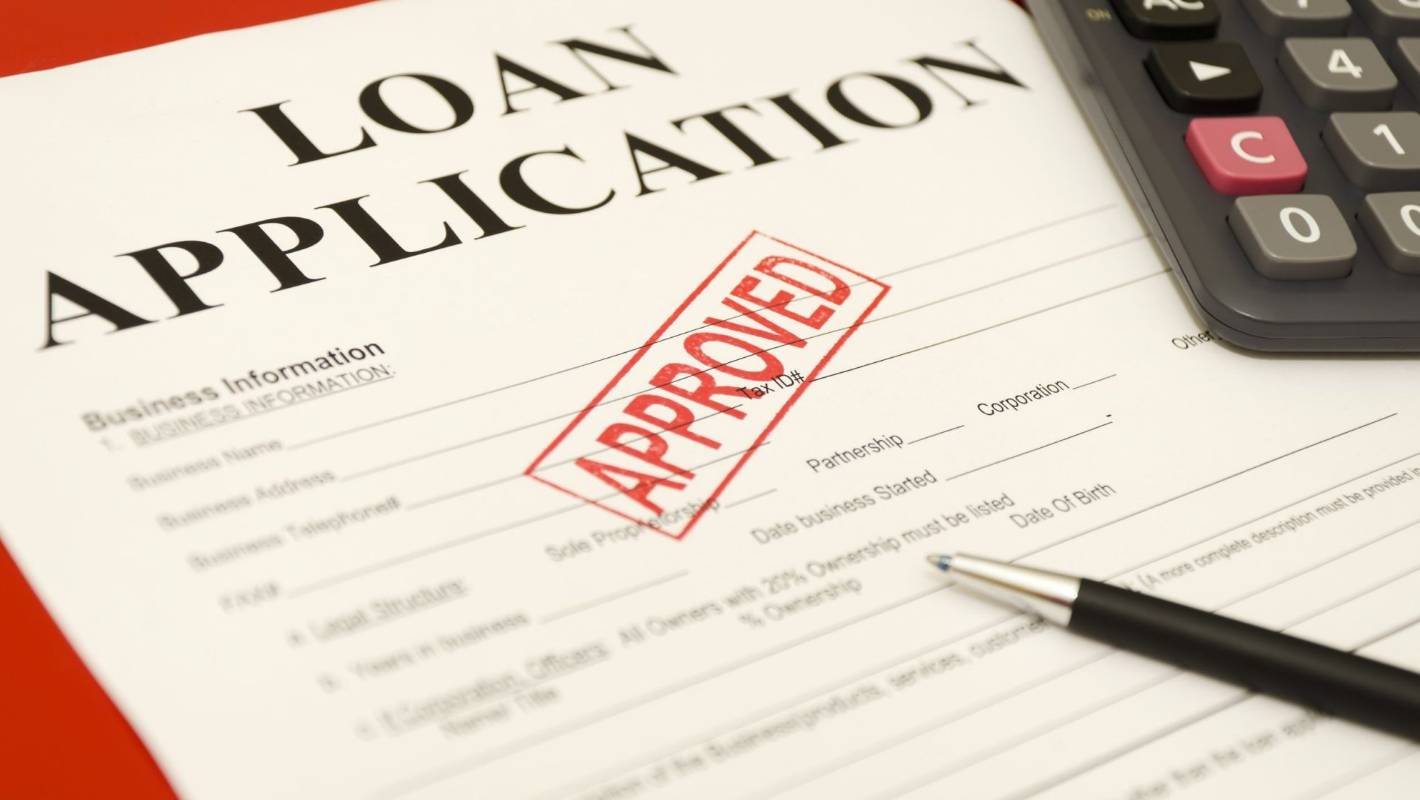


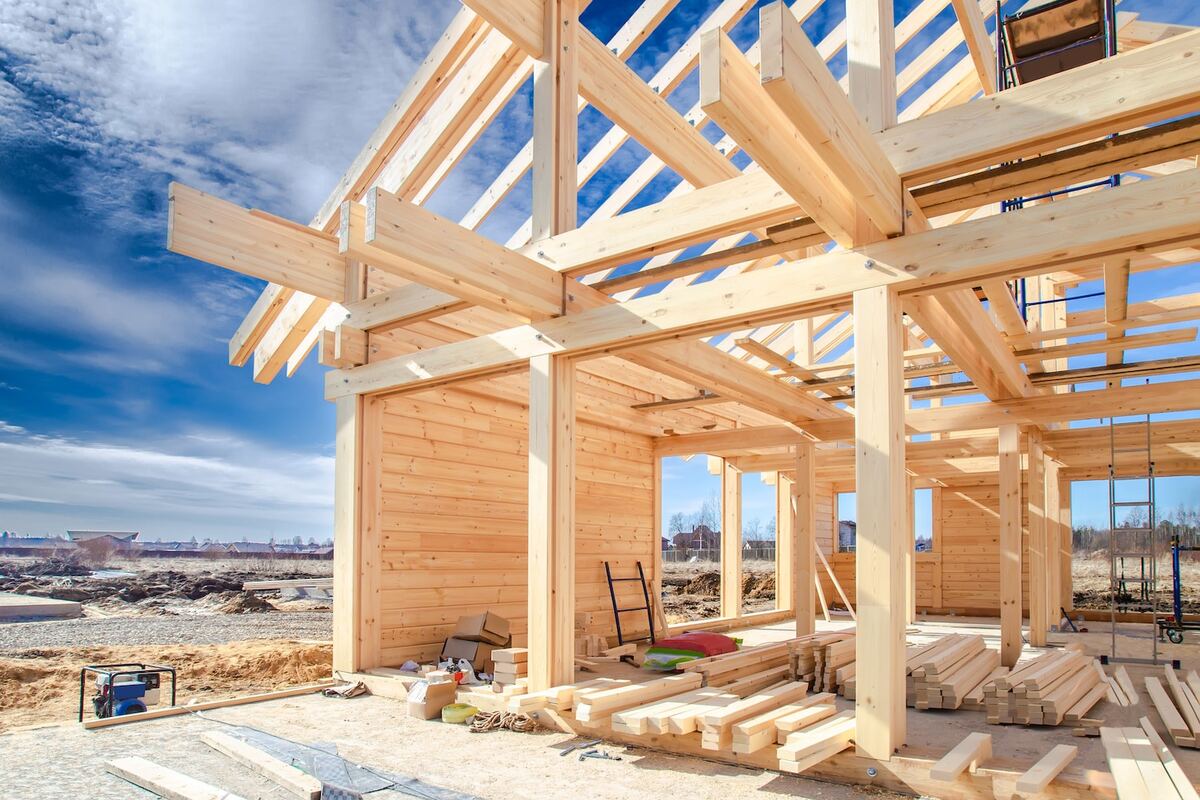
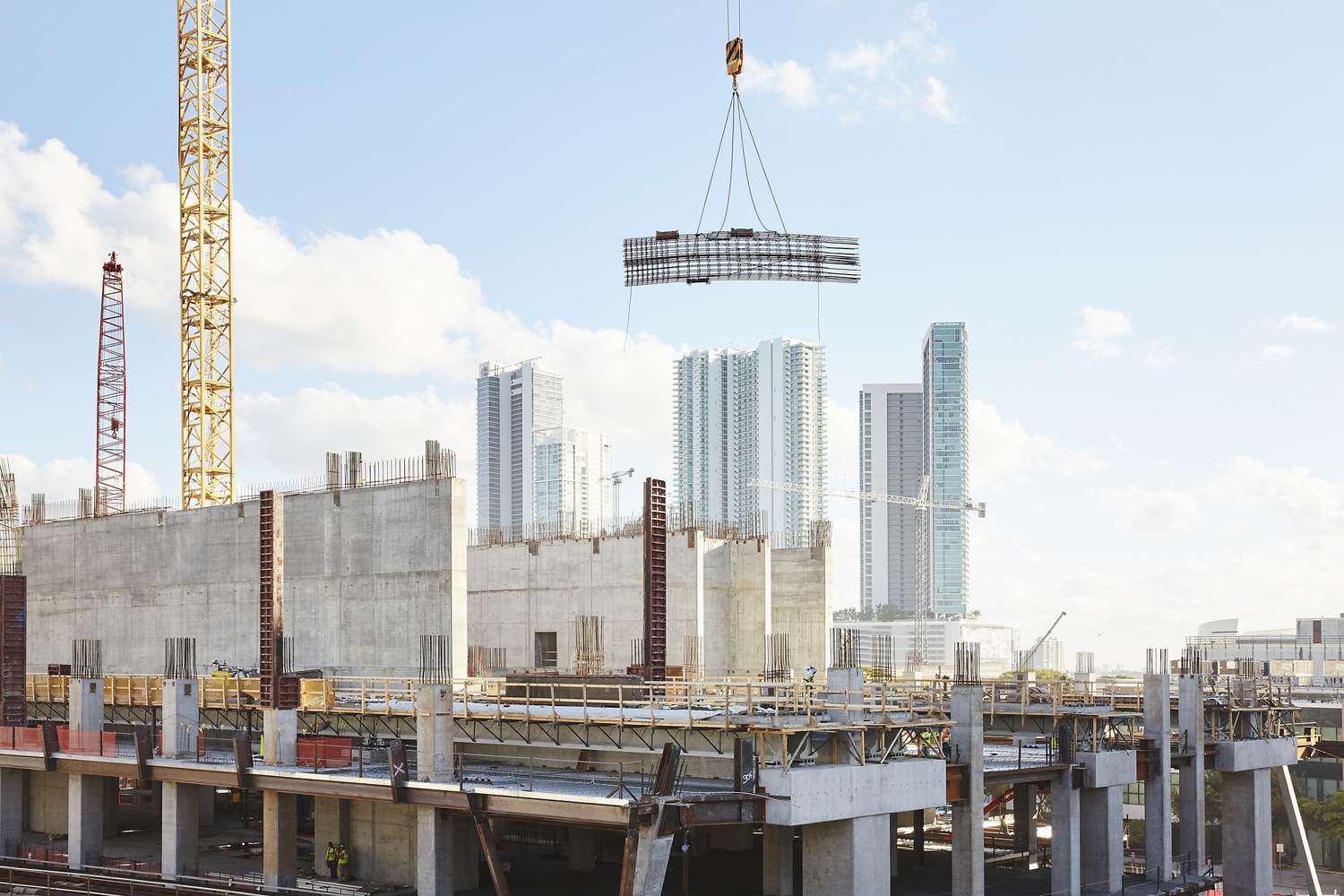

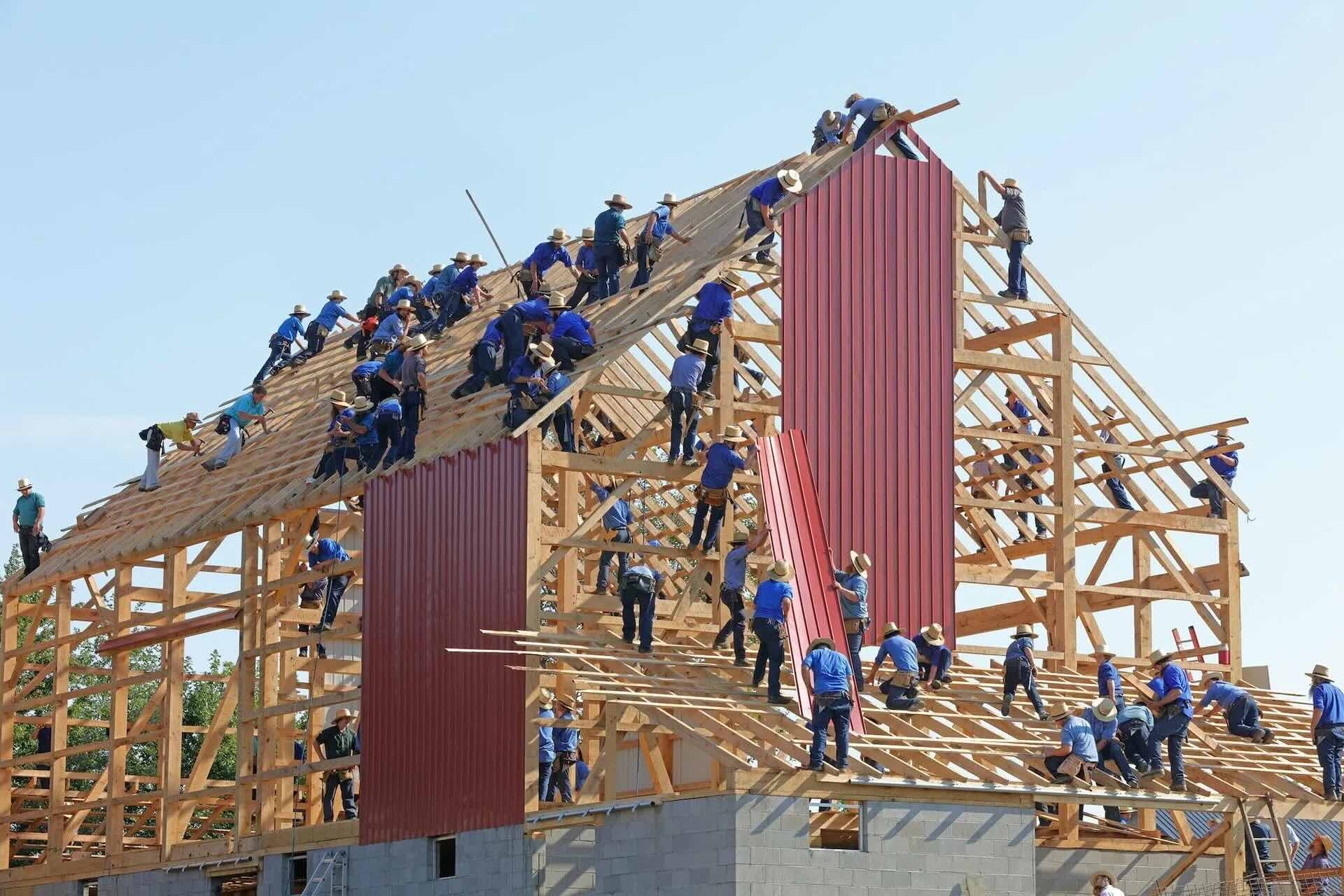
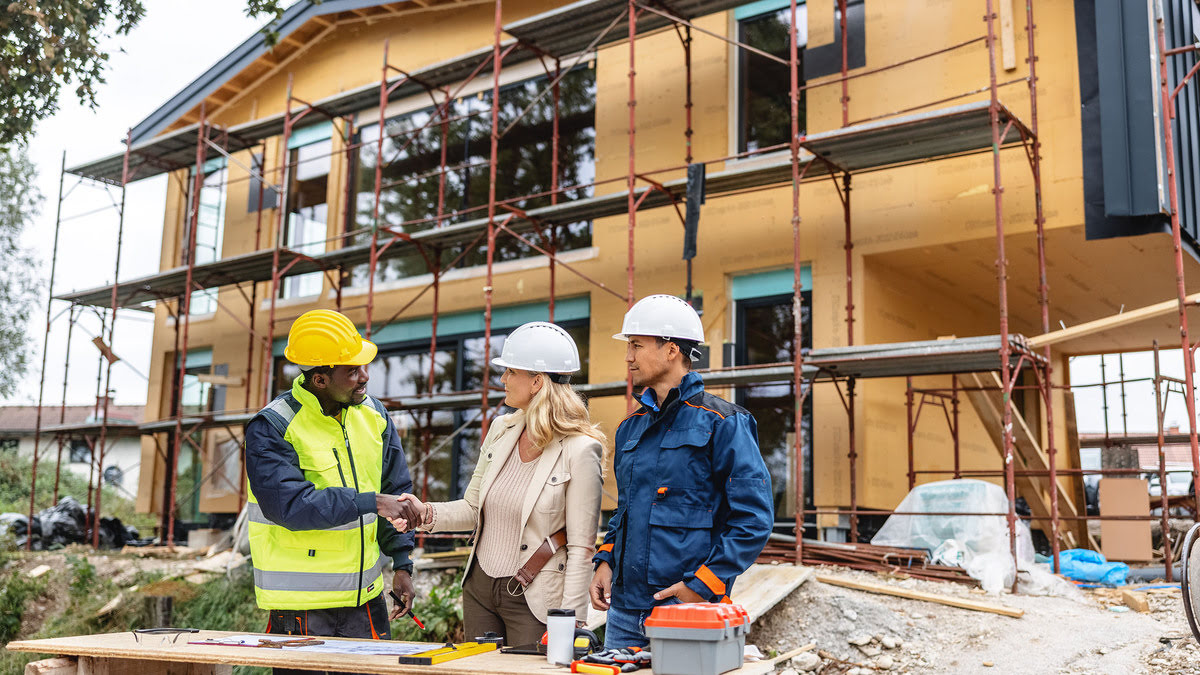


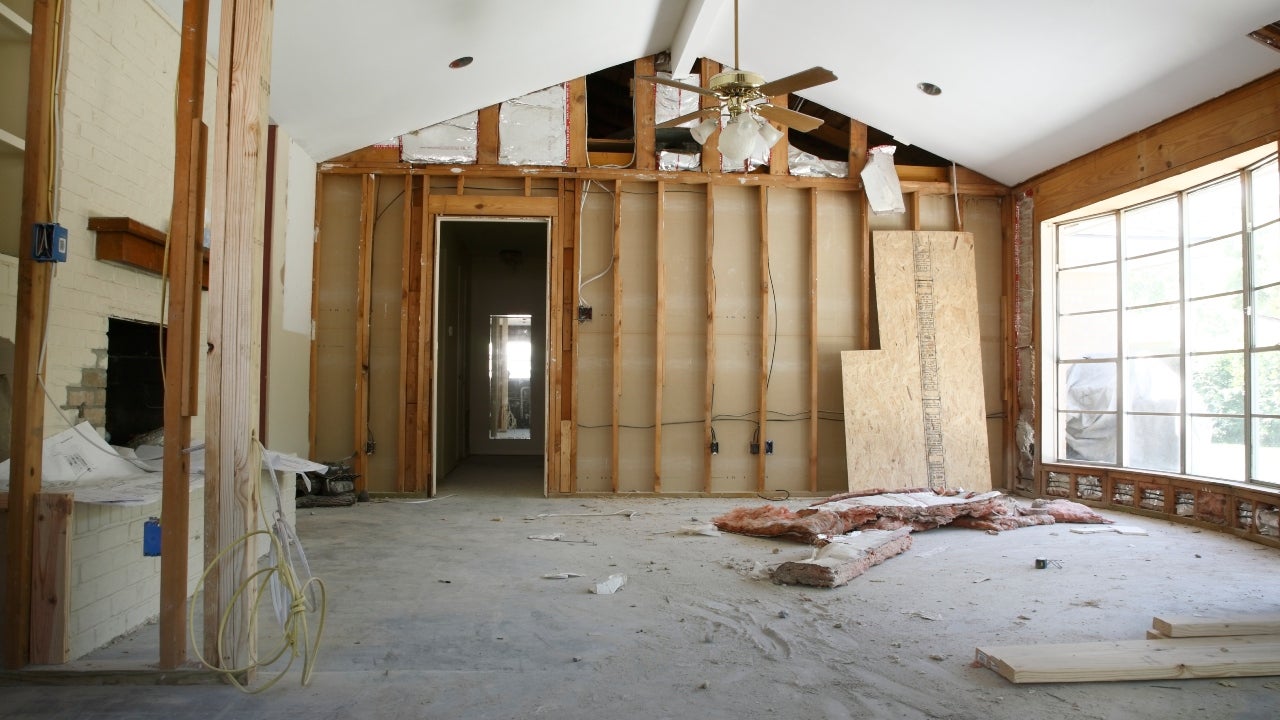



0 thoughts on “What Is A Construction Loan For A House”